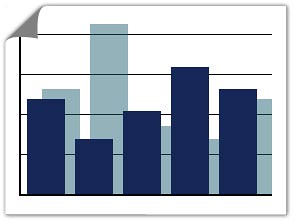 New Metro Board Member Marcel C. Acosta was nice enough to answer a few questions via email.
New Metro Board Member Marcel C. Acosta was nice enough to answer a few questions via email.Here's a brief bio from the Metro press release: "As an Executive Director for the National Capital Planning Commission (NCPC), Acosta has extensive knowledge of the Washington Metropolitan region. Prior to joining the NCPC, Acosta served as an executive of the Chicago Transit Authority, where he successfully oversaw initiatives to reduce operating costs of the bus and rail systems and to increase system ridership. Acosta is a District of Columbia resident who rides Metro to work daily."
Here's the Q&A
What are three shortcomings of Metro from the riders' perspective?
a) Concerns about system safety: I ride Metro daily and have done so since moving to Washington in 2001. While working at the Chicago Transit Authority, I was well aware of WMATA’s good reputation and leadership in the transit industry. Unfortunately, recent tragic events including the Red Line accident in June and subsequent incidents have raised serious questions about our ability to deliver the basics: a safe and reliable service. If we want to keep customers and restore the public’s confidence, we must work hard every day to make safety our top priority. This will require a culture of safety at all levels of Metro—from the Board, the management team, to the front line employees.
b) Dependability: Transit is a vital service that the public relies upon regularly. Our customers need to depend on Metro to get to work, to school, and to other destinations of choice, on time. As a daily rider, I know what it is like to stand in a packed train and have to exit the car because of door problems, or to wait at a bus stop for a long time only to then have two or three buses arrive within minutes of each other. For Metro to remain the transportation option of choice, riders must have confidence that they can rely on the system to deliver them safely, comfortably, and on time.
c) Customer experience: We must continue focusing attention on providing a first-class experience for riders—from the moment travel begins, to the moment a rider departs a Metro station or bus. This includes everything from cleanliness of the stations to friendliness of Metro staff. While riding Metro over the years I have had the good fortune to meet many exceptional frontline employees. But I’ve also been frustrated by poor customer communications and dirty trains. We have to learn from our best employees, raise our standards, and make sure that there is a consistent, top-notch customer experience throughout the system.
What do you plan to do to improve these shortcomings?
There is no silver bullet given the financial situation that WMATA faces today. While I plan to bring a rider’s perspective, I also understand the difficulty at hand because we faced many of the same issues while I was at the Chicago Transit Authority in the 1990s. Frankly, the situation in Chicago was even more dire because of the system’s poor physical condition and the lack of capital investment in our fleet and facilities over the course of decades, not just years. We had elevated train structures that were literally crumbling before our eyes and a bus fleet that should have been retired years earlier. We had the same operating budget problems that WMATA faces today. My board colleague, Mort Downey, inherited a similar situation when he served as the executive director of the New York City Metropolitan Transit Authority in the 1980s.
That said, WMATA faces serious operating budget deficits and a lack of capital funds to keep the system in a good state of repair. Right now, we have an opportunity to avoid some of the big mistakes that we’ve seen in other cities that dealt with similar problems a generation ago. While we have to ensure that we have the best possible safety procedures and that management accountability structures are in place, many of the frustrations that riders experience today are in part a result of portions of the Metro system reaching middle-age. This means modernization and repair are inevitable. While we also have to deal with a projected $190 million operating deficit in fiscal year 2011, and possibly more in the future, I am also concerned about the prospects of transferring a portion of our capital funds to cover operating budget gaps.
While transferring capital to cover operating deficits may be the “path of least resistance” in the short term, I also know from personal experience that it will just lead to enormous problems within several years. It also will undermine our ability to deliver a safer and more reliable system today and in the future because we will not be able to fix the underlying track, signal, equipment, and facility problems in the long term. However, this means that we will have to make some difficult short-term decisions regarding fares, service levels and other important administrative initiatives while we try to find other sources of operating funds for the system.
To do this, we need to talk with riders to hear directly about what works and what doesn’t work, and to help us make these important short-term choices. At the end of the day, our customers will feel the brunt of the Board’s decisions. I was very impressed and heartened by the thoughtfulness of the public testimony at the recent budget hearing. Many understood that we had to make a choice between four undesirable options and that that our ability to provide a safe and dependable service is directly related to our ability to fix the system.
I am confident that as a board we can overcome these challenges. Given the situation, we must work cooperatively with each other, Metro’s leadership, staff, and the public. My job and that of the rest of the Board is to create a high level of accountability, oversight, and support for Metro management and employees so they can do the best job possible. Our most immediate decision will be choosing an interim and permanent general manager who can balance daily operations with inspirational leadership and renew confidence in the system.
How important do you think not having veto power will be?
Given the situation at hand, the Board needs to work towards solutions. A veto is only used to block action, and I understand that it isn’t used often. Frankly, I am more concerned that we work together to resolve tough issues quickly and effectively. To get the job done, board members must establish common ground and common purpose. I believe that I can help find this common ground by trying to help focus our decision around the needs of our customers and refocusing on the system as a whole, since I bring a regional perspective to the table.
Do you agree with Mr. Downey [the other federal appointee] that Metro is in "serious disorder?"
This is a critical time for Metro. I know that the board, employees, and our customers are fully aware that there are serious problems today and that we face serious hurdles ahead. We must address current problems while building upon Metro’s assets and sustaining affordability and access for all. As stewards of the system, we face making tough choices to overcome an operating deficit of $190-million and $11.4 billion in unfunded capital improvements that are needed to bring the system to a good state of repair. To restore confidence and provide a service that is safe, reliable, clean, and affordable our immediate goals should include finding the right leader to move the agency forward, resolving Metro’s operating budget deficit, and preserving capital funds for maintenance and modernization.
What are steps you and Mr. Downey can take to push the Board to adopt a more regional view?
First, it’s important to note that this region has greatly benefited from the introduction and growth of Metro over the past 33-years. The system has created a more walkable downtown, cleaner air, and reduced road congestion for those who drive. As our region’s largest employer, the federal government has facilities throughout the region—in Virginia, Maryland, and the District of Columbia and our workforce is traveling from various cities and counties throughout the National Capital Region. Therefore, the federal government has a critical interest in ensuring that we have an effective transportation system that meets the needs of area workers, residents, and visitors.
More than 40 percent of rush hour commuters on Metrorail are federal employees, and at the National Capital Planning Commission (NCPC), more than 90 percent of the agency’s employees commute daily via Metro, including me. I am personally committed to helping create a stronger, healthier transit system that will better serve this region and be a showcase for the nation. NCPC oversees federal planning throughout the region, so I understand and appreciate the value of a regional discussion.
Every board member brings a valued perspective to the table. At the end of the day Mr. Downey and I are here to help ensure Metro’s success; to make decisions that will foster a best-in-class system; and to provide our citizens with reliable, safe, and on-time transit service that will get them where they need to go. It’s a challenge, but one that I’m looking forward to tackling.
What role can the ATU 689 take in improving Metro?
I see the role of all Metro employees as a very important one. Everyone at WMATA, from Board members to management, to frontline staff must work together and commit to making Metro consistently safe, reliable, and affordable. It’s what our riders rightfully expect, and it’s what we all should be working toward day in and day out.









 Oct. 11, 2012
Oct. 11, 2012 February 21, 2012
February 21, 2012 March 4, 2010
March 4, 2010





10 comments:
I am impressed. I don't think I want to admit it though. ;-)
Interesting. He sounds good. We'll see what happens when he gets WMATA all over him. Wishing him well. Rider's perspeective is key.
He didn't answer the last question and I don't blame him.
why not give him veto power!!!!
Screw veto power. WMATA needs a benevolent dictator. I vote for Mr. Acosta.
i'm impressed too... not totally convinced, but hopeful that good changes can be made with these new guys on board (pun intended).
nice to see someone who a) has experience working for another major transit system and b) rides the system regularly.
Metro will never get a grip on it's finances without curtailing spending on its people. Look at the budget. There's very little wiggle room if you don't touch the pink elephant in the room.
Will the union give a millimeter? Not bloody likely. In this climate, with hopes of employment elsewhere unlikely, I can't say I blame them.
I want to be hopeful and impressed but I don't feel I can afford to be, emotionally, as a rider.
Talk is easy and worthless. Let's see what he and his companion can get done. Only actions count.
The damn Union has ruined metro. They need to fire most of their employees and build up a more dedicated staff.
Well if they fire everyone,the service will suck even more. And whose to say the new staff will be dedicated. With the economy the way it is people just want a paycheck.
Post a Comment